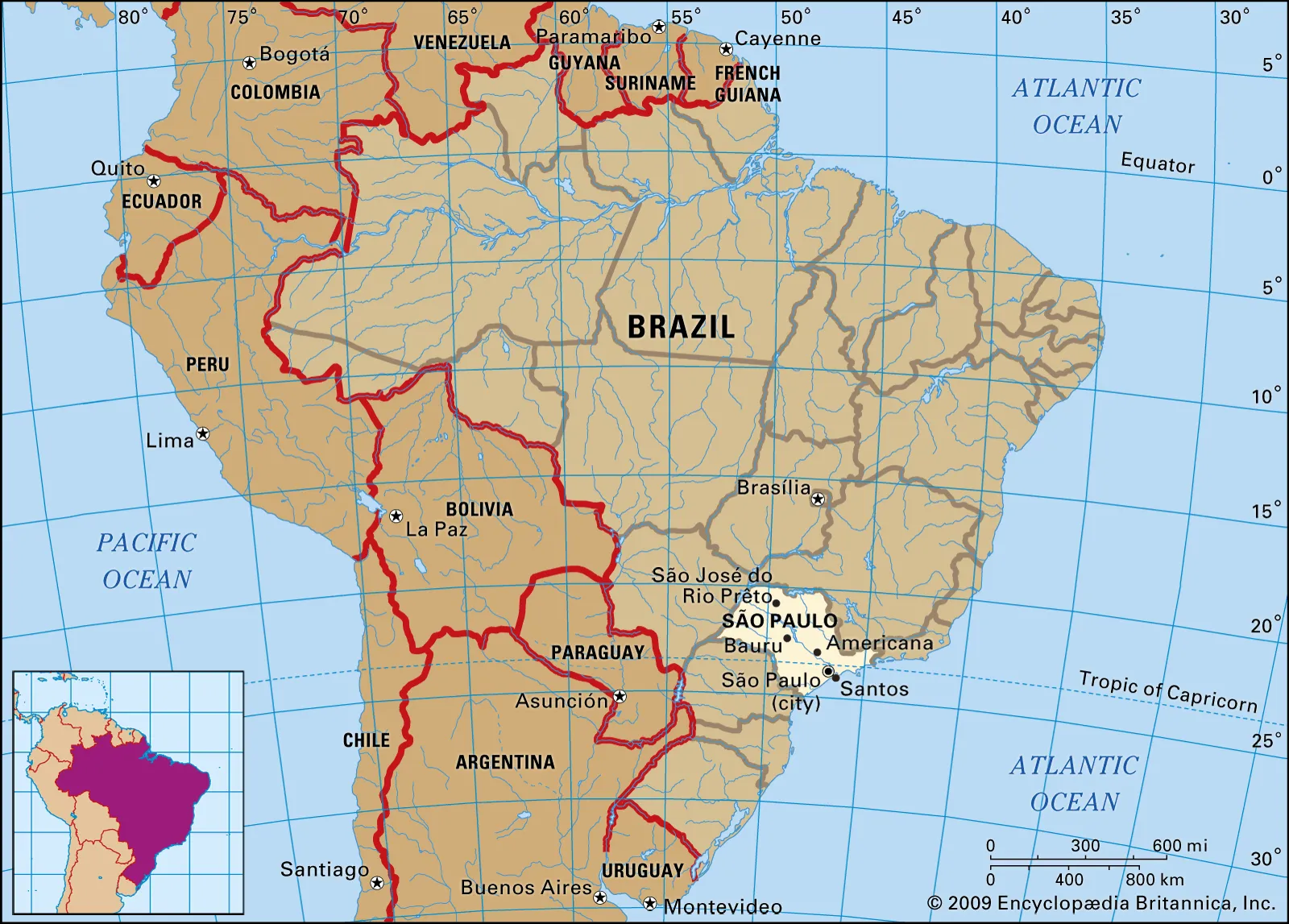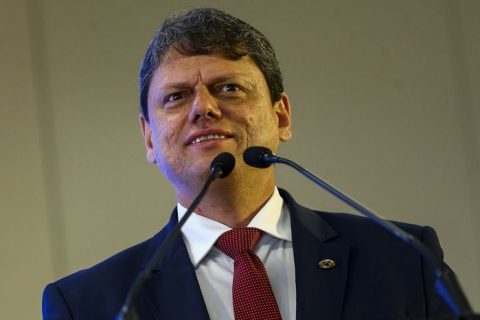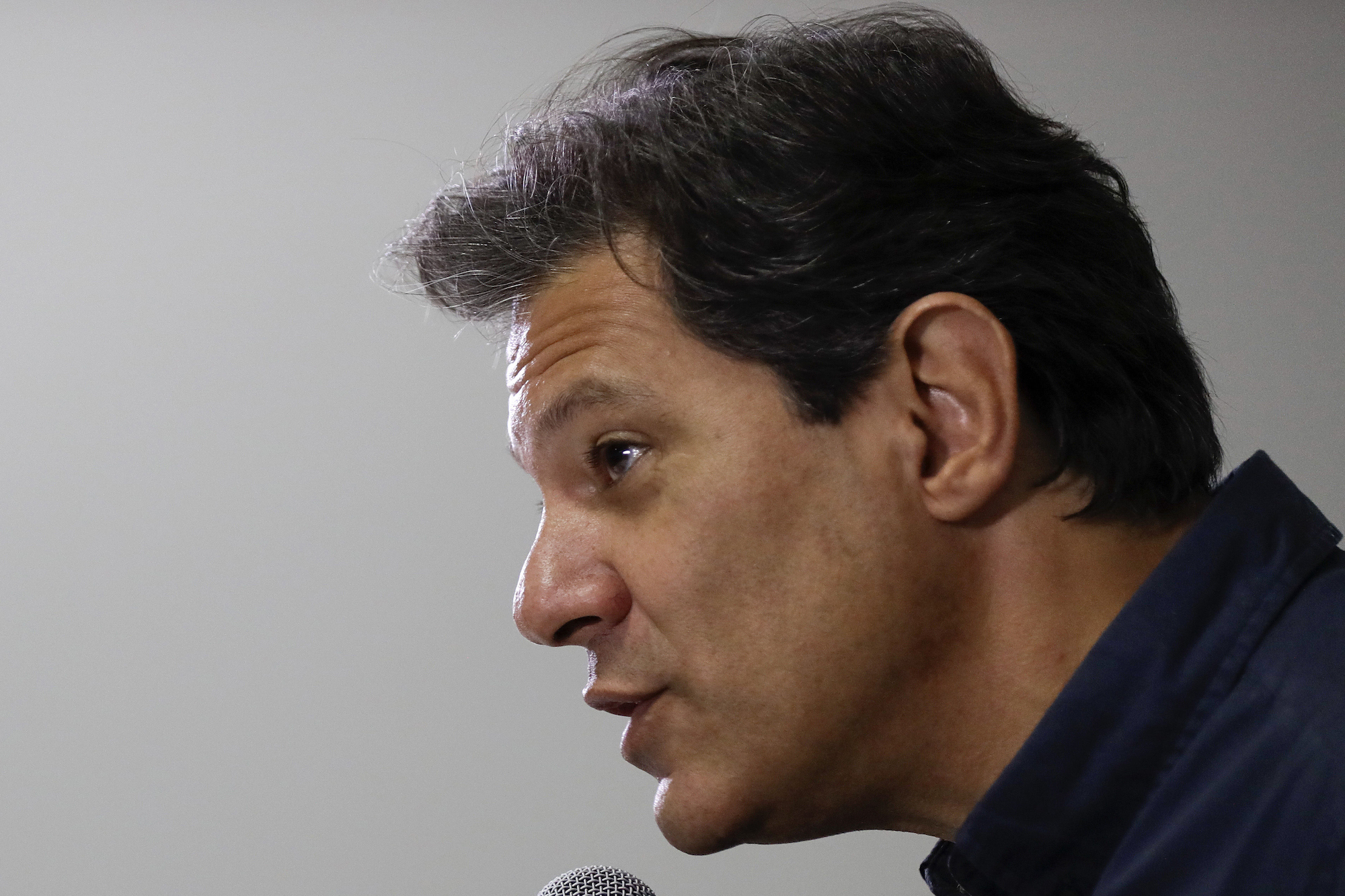The state of São Paulo, Rio de Janeiro, and Minas Gerais will be decisive in winning the election on Oct. 30.
The São Paulo constituency, the largest in the country with 44.14 million inhabitants and 34.6 million votes, or 22.15% of the total, could give the nod to Luiz Inácio Lula da Silva or Jair Messias Bolsonaro.
Of the two leading candidates for São Paulo governor, Fernando Haddad, former mayor of São Paulo’s capital and candidate of Lula’s Workers’ Party (PT, left), was the clear favorite of the notoriously misleading polls before the first round.

However, in reality, he was then well behind his opponent Tarcísio Gomes de Freitas, aka Tarcísio, former infrastructure minister in Bolsonaro’s government and candidate of Bolsonaro’s Republican Party of Brazil (PL, right), after the ballot.
In the first round of voting, Tarcísio received 42.32 percent of the vote, while Haddad received 35.7 percent.
This result marks a historic turning point for Brazil’s most prosperous state.
After 28 years in government, the Brazilian Social Democratic Party (PSDB) lost the São Paulo elections for the first time in its history, with its candidate Rodrigo Garcia suffering an apparent defeat.
“We have succumbed to the temptation of power,” said Tasso Jereissati, one of the PSDB’s senators, in 2019, hinting at his party’s decline-and. Never have his words been so prophetic.
With the PSDB’s support for Tarcísio, and thus indirectly for Bolsonaro, his political godfather, an era is coming to an end in which many former governors of São Paulo belonged to the Tucanos (named after the toucan that has always been the symbol of the PSDB).
From José Serra to João Doria to da Silva’s current vice presidential candidate, Gerardo Alckmin, who will leave the party at the end of 2021 after 33 years of militancy to follow the former president’s electoral project.
Haddad and Tarcísio are thus a novelty but not a surprise.
Haddad was the education minister in the da Silva and Dilma Rousseff governments from 2005 to 2012.
He also challenged Bolsonaro in the 2018 presidential election.
The university professor of political science is well-known in São Paulo’s capital because he was mayor between 2013 and 2016 and was the worst mayor in São Paulo’s history, according to 2016 Datafolha data.

His administration was praised by only 14% of respondents, while 48% thought it was terrible.
The Bolsonaro campaign took up the issue, which the Supreme Electoral Court did not withdraw despite the PT’s request because it did not consider it “fake news.”
In addition, da Silva was accused of corruption and money laundering in the “Lava Jato” case, but this accusation was later dropped.
Tarcísio, a native of Rio de Janeiro, has a military background.
As infrastructure minister, he promoted a series of concessions to the private sector and conducted 83 public auctions.
He was never a party member until his candidacy for the São Paulo government.
Many wonder what his government will look like since he has never lived in São Paulo.
However, he has been able to prove a residence in the city of Sao José dos Campos, which is considered fraudulent by his opponents.
Haddad and Tarcísio faced off in the first televised debate after the first round on Monday night (10) local time. The Brazilian press praised them for the composure of their discussion following heated arguments between da Silva and Bolsonaro in recent weeks.
However, both limited the debate to national issues and skirted the real agenda of a possible government in São Paulo.
Haddad attacked Tarcísio over Bolsonaro’s policies, from the deforestation of the Amazon rainforest to the alleged secret budget, a legal but opaque mechanism for transferring funds from the executive to the legislature.
Tarcísio also actually attacked da Silva with his attack on Haddad.
On the issue of security, for example, he cited the former president’s unfortunate phrase: “Bolsonaro doesn’t love the people; he loves the police.”
The very issue of security seemed to be one of the weakest for both candidates.
However, the state of São Paulo is in an unprecedented predicament.
Since 2015, the power and turnover of the First Capital Command (PCC), the leading criminal group that emerged in São Paulo’s prisons in 1993, has grown exponentially.
As a result, the entire state, especially the port of Santos, has become the central hub for cocaine trafficking to Europe.
In addition, major cities, especially São Paulo, are being flooded with new synthetic drugs plaguing the teenage generation in the wake of the crack epidemic.
The various types of synthetic marijuana, from K2 to K4 to Spice, have become a public health and safety concern.
The candidates, however, have not spoken out about it.
For Tarcísio, it is necessary to “invest in the role of private initiative,”, especially in the Port Authority of Santos.
“Give an example in the world where this privatization has worked,” Haddad replied.
However, the former mayor did not mention the problems of security and compliance in this type of privatization, which could facilitate the infiltration of the PCC in the administration.
The same happened with the ‘ndrangheta (the most influential Italian mafia) in constructing part of the Calabrian port of Gioia Tauro.

Tarcísio not only emphasized the civilian arms port as a deterrent to violence but also called for the abolition of cameras carried by military police.
In reality, this is a very sensitive issue because it could facilitate the formation of militias made up of police officers or former police officers, who already control parts of Rio de Janeiro and the neighboring Baixada Fluminense are also present in the Amazon region.
On the other big issue, the economy, the debate focused on the respective policies of da Silva or Bolsonaro rather than a specific plan for the state of São Paulo.
“The government’s hand saved thousands of businesses during the pandemic,” Tarcísio responded to Haddad’s criticism.
However, there were few proposals for São Paulo’s future aside from maintaining the reduction in the excise tax on gasoline, extending payment terms for small businesses, and reducing taxes on the purchase of capital goods.
Haddad promised to keep gas prices as low as Tarcísio and, if elected, to join with the other governors to override Bolsonaro’s veto of compensating states for the lost revenue from the state-level VAT tax cut.
However, the crucial economic scenario represented by the state of São Paulo and a possible strategy to protect and promote it were disregarded.
According to the latest 2020 data from the Brazilian Institute of Economic Geography (IBG) and the Fundação Sistema Estadual de Análise de Dados (Seade), the state of São Paulo accounts for 31.2% of the country’s gross domestic product (GDP).
In the last three years, its economic activity has grown by 7.5%, compared to 1.5% for Brazil in the same period.
However, with the closure of several international factories in the industrial suburbs of the metropolis known as “Grande São Paulo,” the relocation specter has begun to feel itself.
In any case, it was the first debate between the two candidates, with more to follow, the last one on Oct. 27 on TV Globo.
In the second round’s poll, Tarcísio is considered the favorite with 53% of the vote compared to 47% for Haddad, according to Ipec.
But anything can still happen in a scenario as volatile as the Brazilian elections.
And we saw in the first round of elections not only how little polls are worth in Brazil, but also how manipulative they have become.

